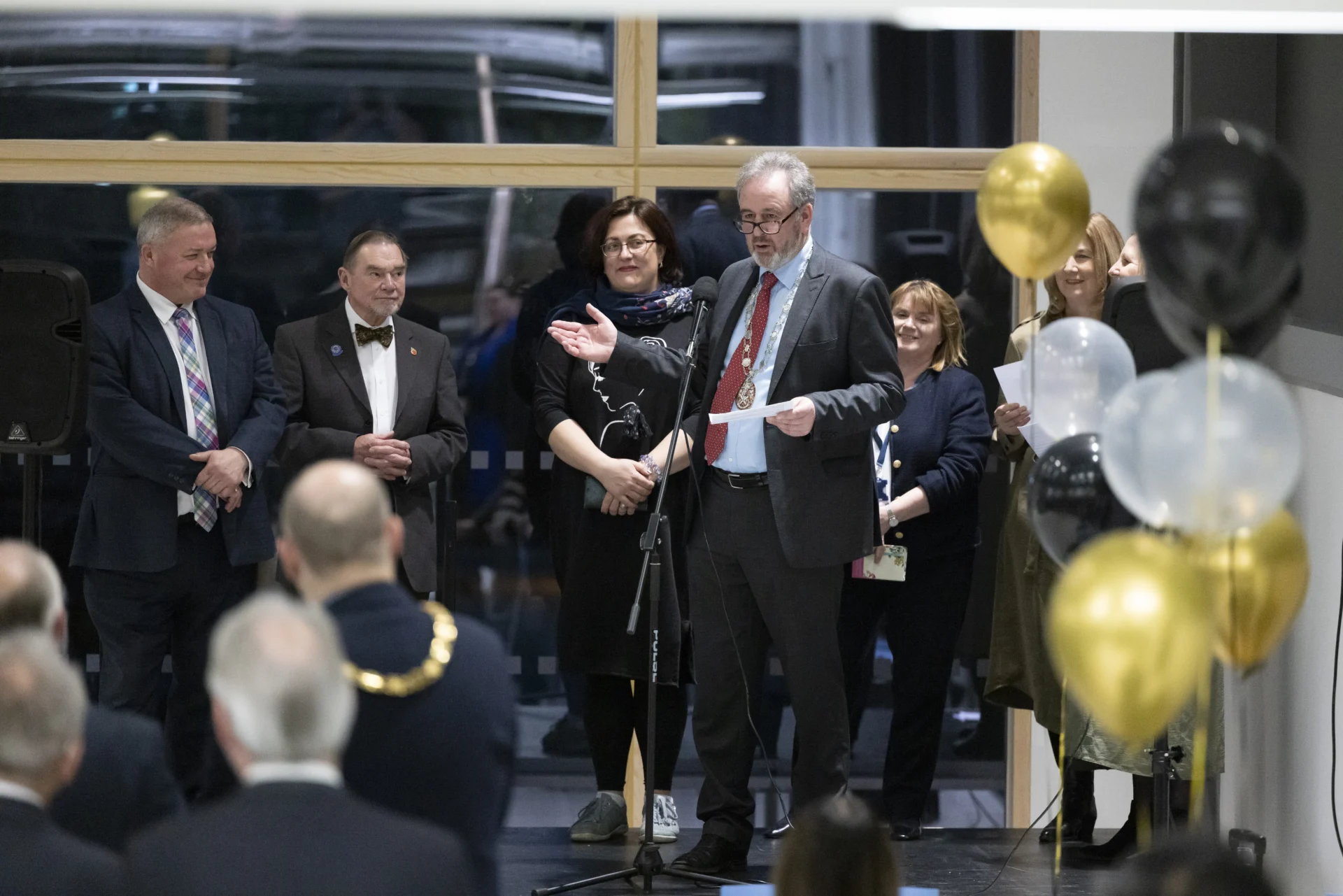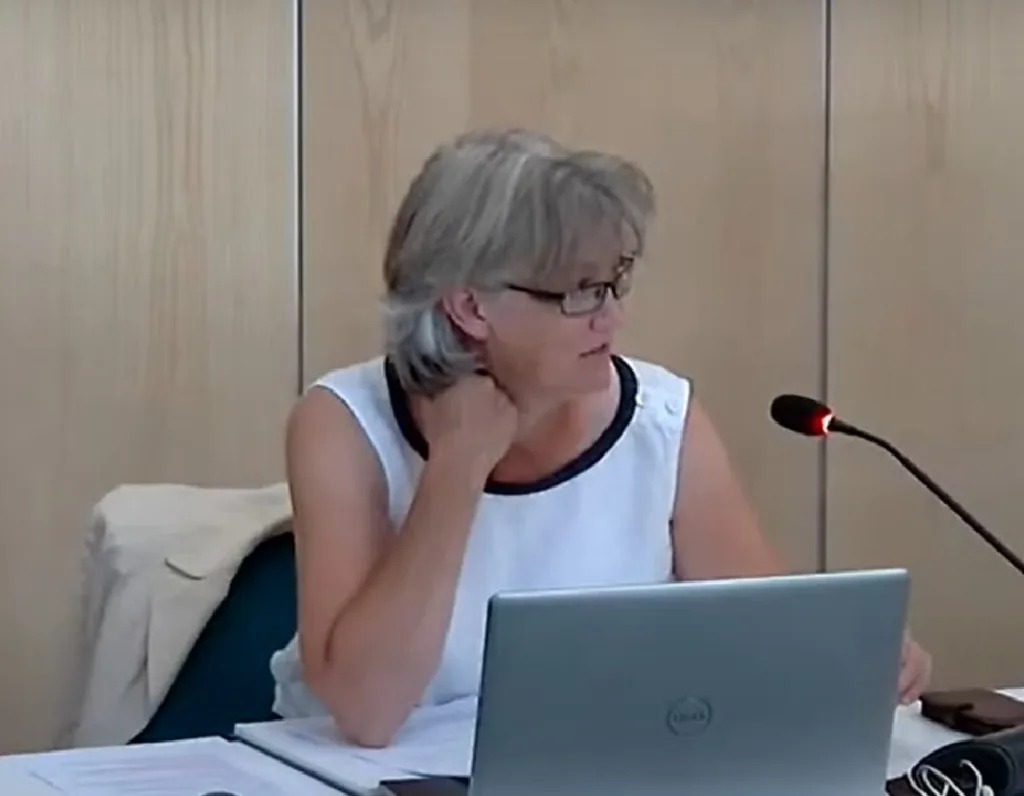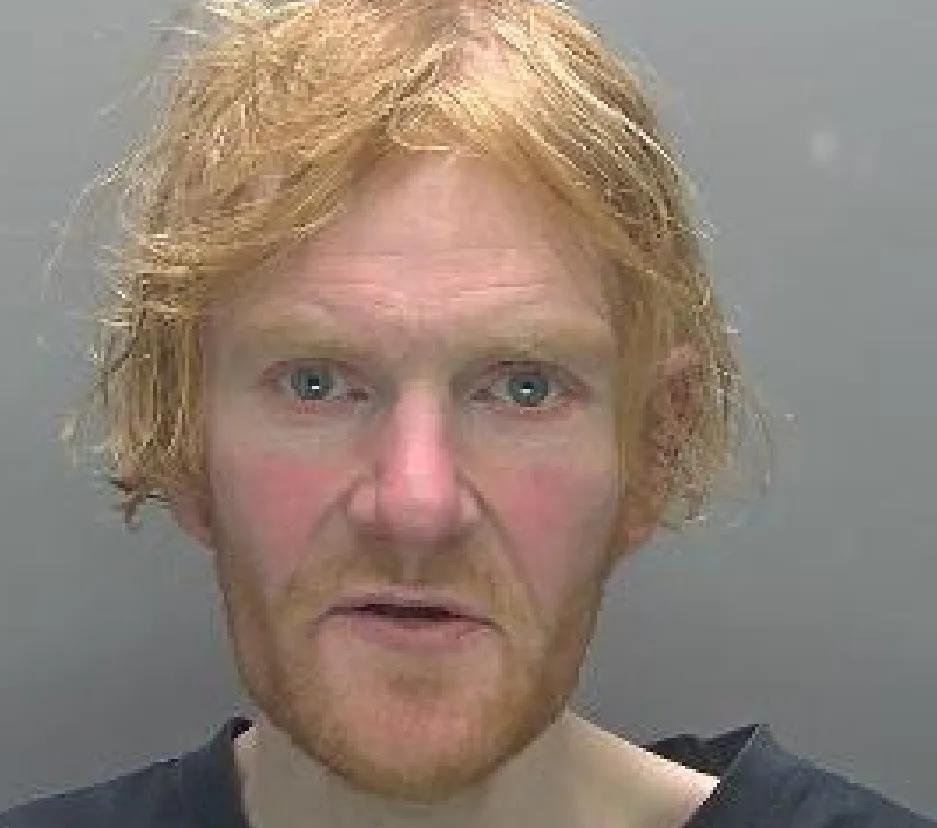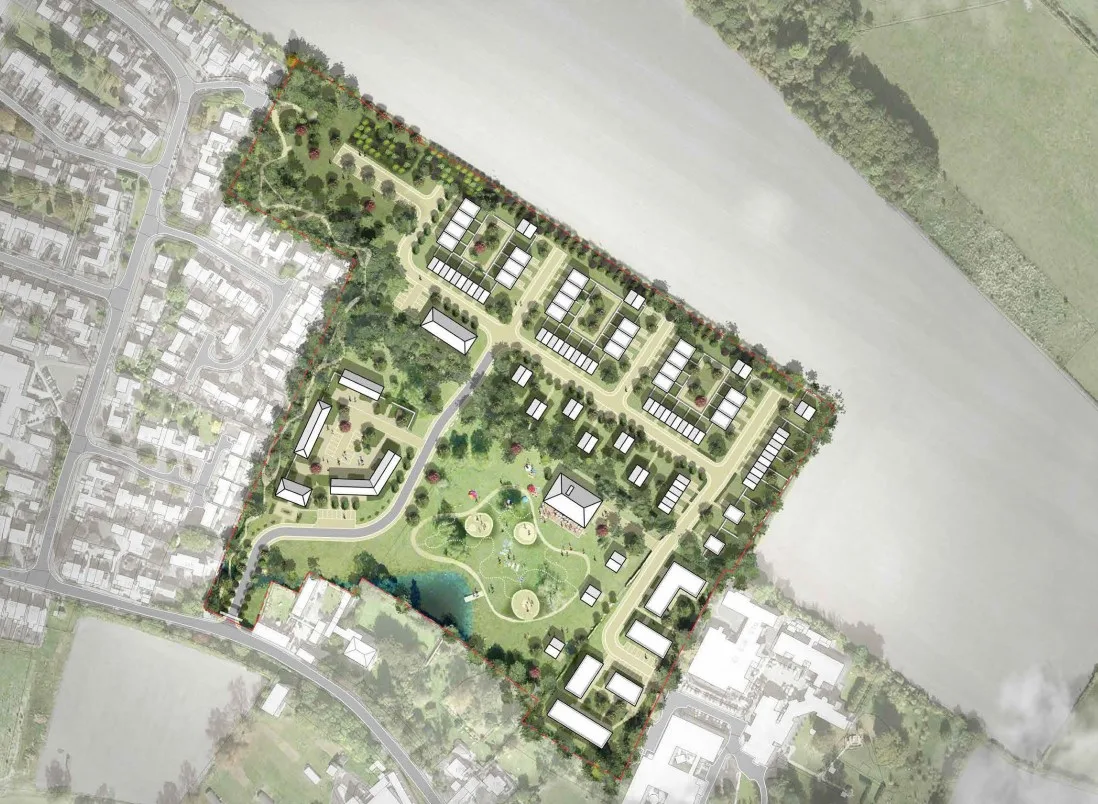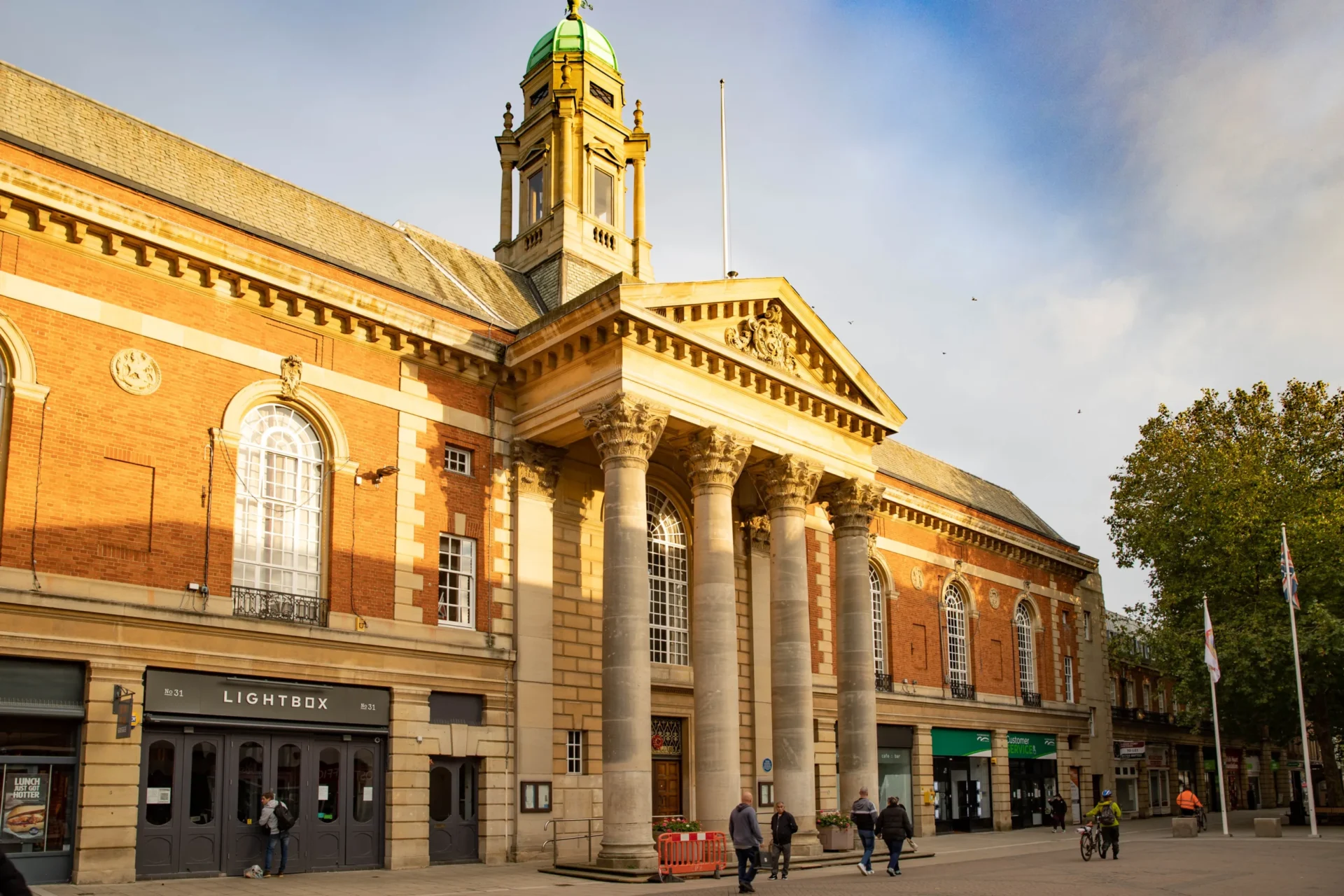South Cambridgeshire District Council is celebrating its golden anniversary. Cllr Peter Fane, Chair of South Cambridgeshire District Council, said: “The 50th anniversary is an opportunity to pay our thanks to the unwavering dedication and commitment of all those who have served on and worked for the council over the years.”
He said the anniversary also celebrated “the continued support of our residents and stakeholders.
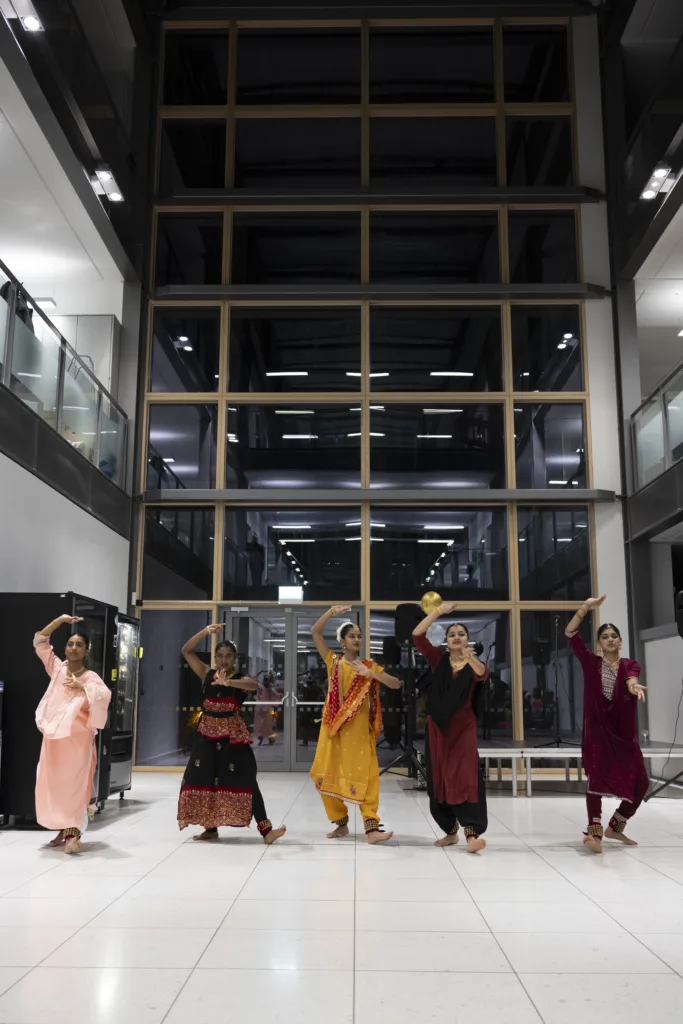
“Together, we have achieved remarkable progress and transformation, making our district a great place to live, work, and thrive”.
Cllr Fane added: “The District Council remains steadfast in its commitment to putting the heart into South Cambridgeshire and serving the evolving needs of our communities, building on the legacy of the past 50 years.”
Councillors say that the half century milestone is a legacy of service, innovation, and progress over the last five decades.
A council spokesperson said: “Officially established in April 1974, the District Council has been at the forefront of shaping vibrant communities across 104 parishes.”
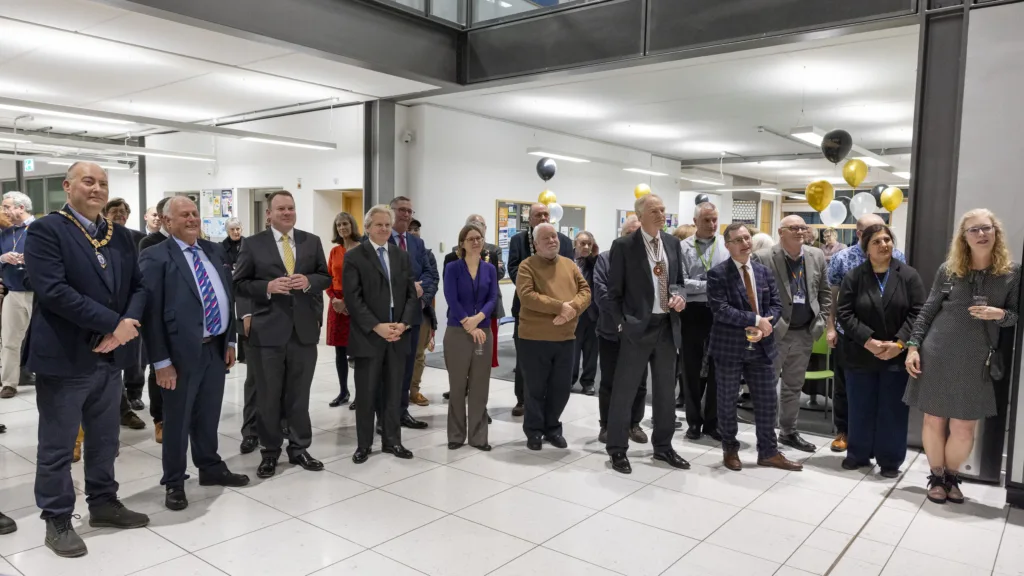
The spokesperson said that among notable events in its 50-year history has been:
- 1974 – A pilot scheme for salvaging wastepaper is proposed, an early version of the green box recycling scheme.
- 1979/80 – Six homes are provided for Vietnamese refugees.
- 1981/82 – Councillor Roberta Cannon is elected the first female Chair.
- 1986/87 – Plans for a wheeled bin refuse service are rejected due to cost.
- 1994/95 – More than 8 in 10 residents oppose merging with Cambridge City.
- 2004/05 – Offices move from Hills Road, Cambridge, to Cambourne.
- 2011/12 – The Council takes on a £205 million debt from Government as part of the Council Housing stock transfer – but can now receive 100% of its Council rent and capital receipts.
- 2013/14 – The Council agrees to allow meetings to be filmed by the public.
- 2018/19 – The Council supports construction of East West Rail line
- 2020 – Changes to decision-making process are adopted to allow for remote meetings during the pandemic.
- 2023 – The four-day week trial begins.
- 2023/24 – The Council achieves bronze accreditation as a Carbon Literate Organisation by the Carbon Literacy Trust.
As part of its 50th anniversary celebrations the council hosted an event attended by Mr Jeremy Newsum, a Deputy Lieutenant of Cambridgeshire, Cllr Sebastian Kindersley, Chair of Cambridgeshire County Council, as well as current and former local councillors.
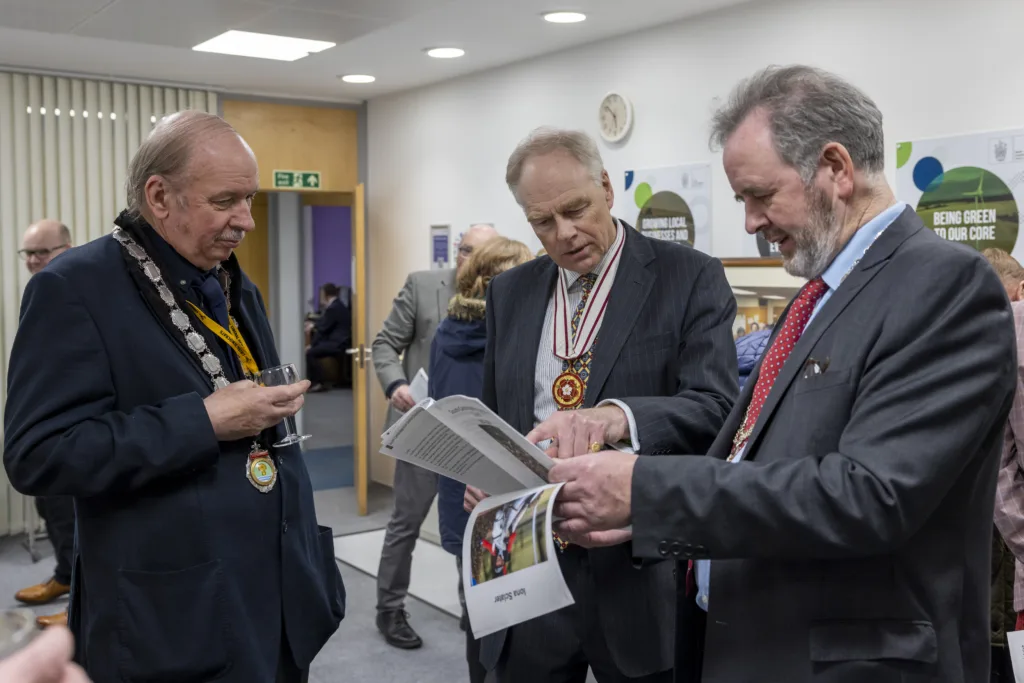
50th anniversary celebrations for South Cambridgeshire District Council. Cllr Peter Sandford, vice chair, Jeremy Newsum, Dep Lt and Cllr Peter Fane, chair PHOTO: David Johnson
“The occasion was an opportunity to come together to mark the golden anniversary and reflect on the shared history and heritage of the District,” said the spokesperson.
During the event there was a tree planting ceremony, a dance performance and exhibits outlining the Council’s history.
“The District Council has fostered a sense of belonging among residents over the years including implementing sustainable development projects,” said the spokesperson.
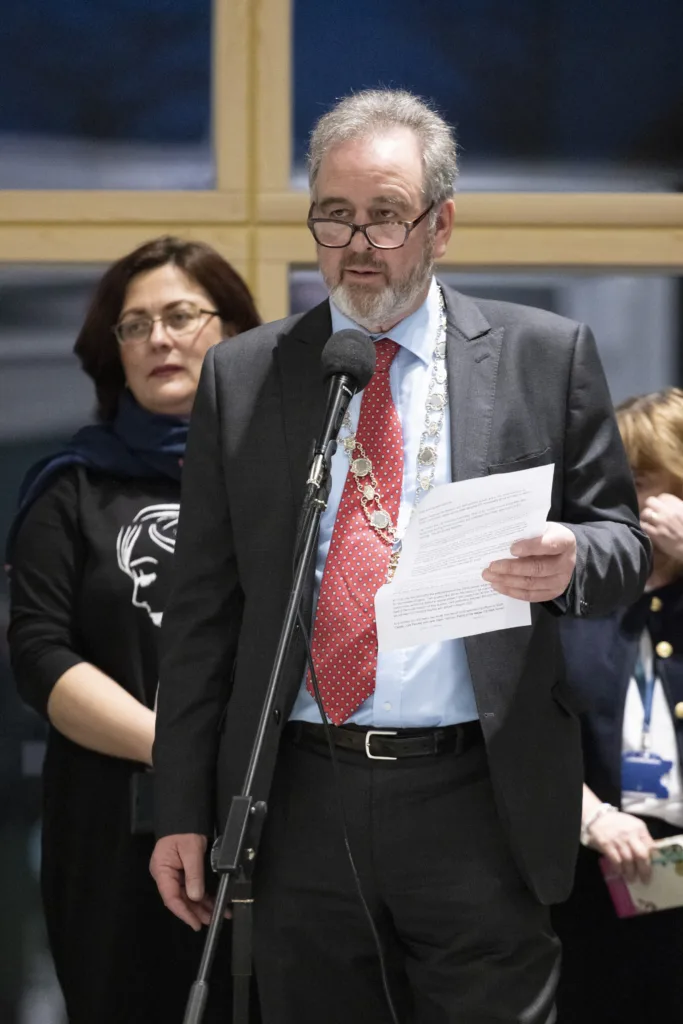
50th anniversary celebrations for South Cambridgeshire District Council. Cllr Peter Fane, chair PHOTO: David Johnson
“Most recently this included the Northstowe Sports Pavilion, a beacon of green development, as well as supporting businesses across the district.
“It has played a pivotal role in growing a sense of community spirit and cohesion with things like community grants and arranging events like the popular Cambourne Christmas Market.
“ In addition, the Chair’s charity supports local good causes each year such as Cambourne Youth Partnership, the Chair’s charity for 2023/24 – a grassroots charity enabling young people to participate in sport, cookery and community action projects as well as access to mental health and wellbeing support.”
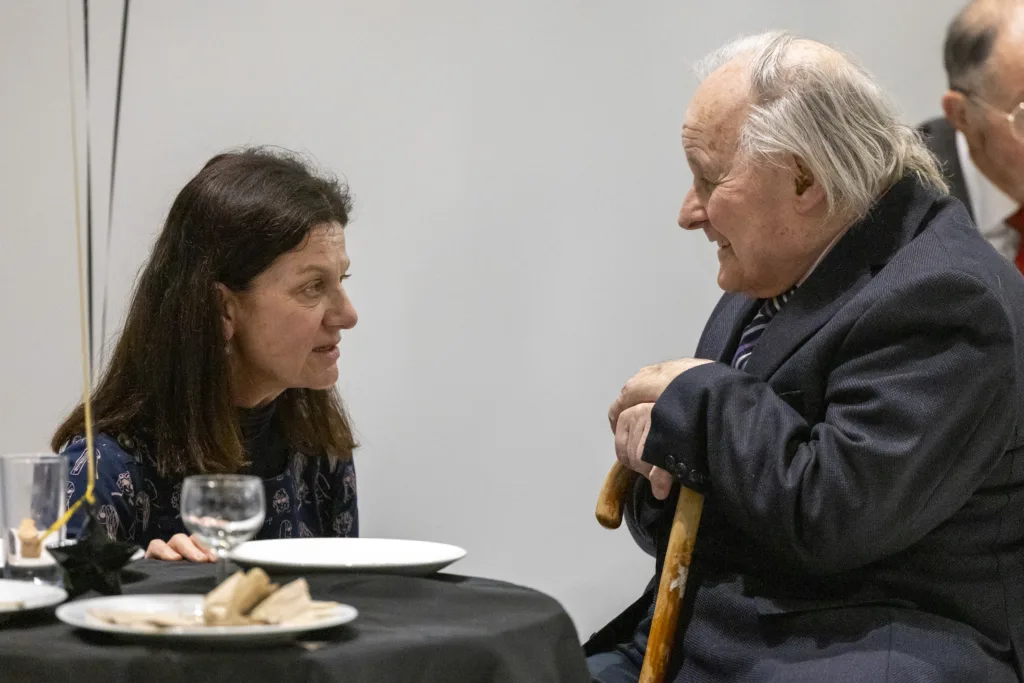
The spokesperson said the council had also hosted the most Ukraine guests for a lower tier authority.
“And the council has nurtured its green to the core strategy with things like the Zero Carbon Communities grants scheme which has given more than half a million pounds to community groups since launching in 2019, to ensure carbon emissions are reduced in South Cambridgeshire for residents to enjoy clean air and a sustainable future”, the spokesperson added.
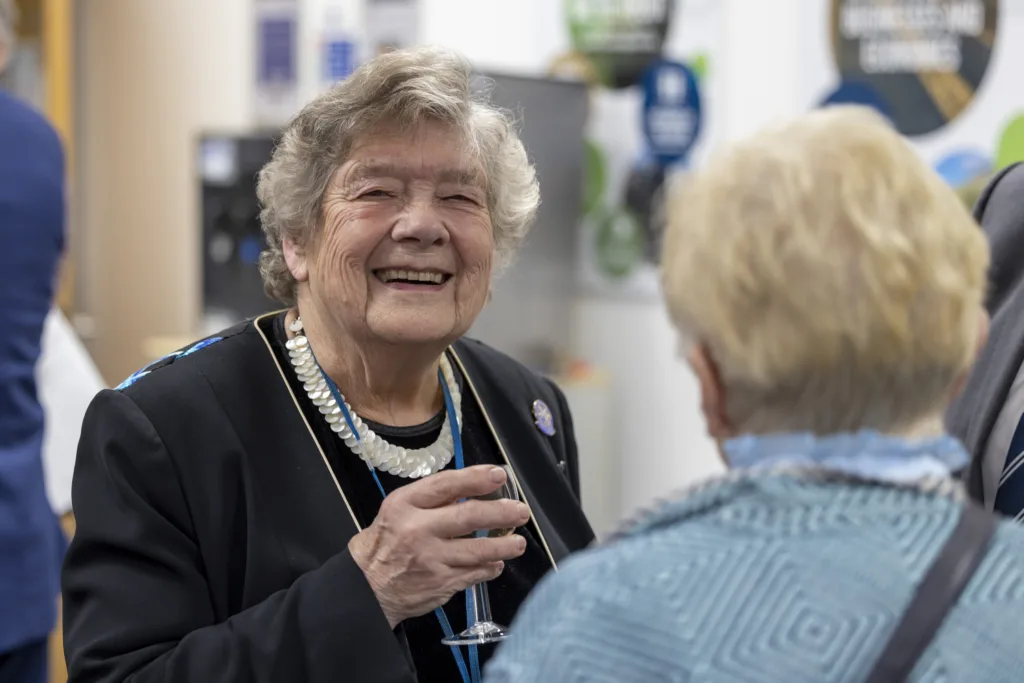
History
1970s
1974 – Chesterton Rural District Council and South Cambridgeshire Rural District Council became South Cambridgeshire District Council
1974 – Council proposes a pilot scheme for salvaging wastepaper, an early version of the green box recycling scheme.
1975/76 – The Council votes overwhelmingly against further development at Stansted Airport.
1976/77 – The Council unveils its new insignia.
1977/78 – Flexible Working Hours considered as part of an organisational review.
1978/79 – Staff restructure is completed but officers remain in the two separate locations of Hills Road and Great Eastern House in Cambridge city centre.
1979/80 – The Council provides six council homes for Vietnamese refugees.

1980s
1980/81 – For the first time refuse collection is scheduled over Christmas / New Year.
1981/82 – Councillor Roberta Cannon is elected the first female Chair.
1984 – Brief experiment to hold evening meetings is abandoned after two meetings.
1985 – The first meeting is held in the new offices at Hills Road in May 1985.
1986/87 – Plans for a wheeled bin refuse service are rejected due to cost.
1987/88 – The Council votes in favour of a new settlement off the A45 (later the A428). This will become Cambourne.
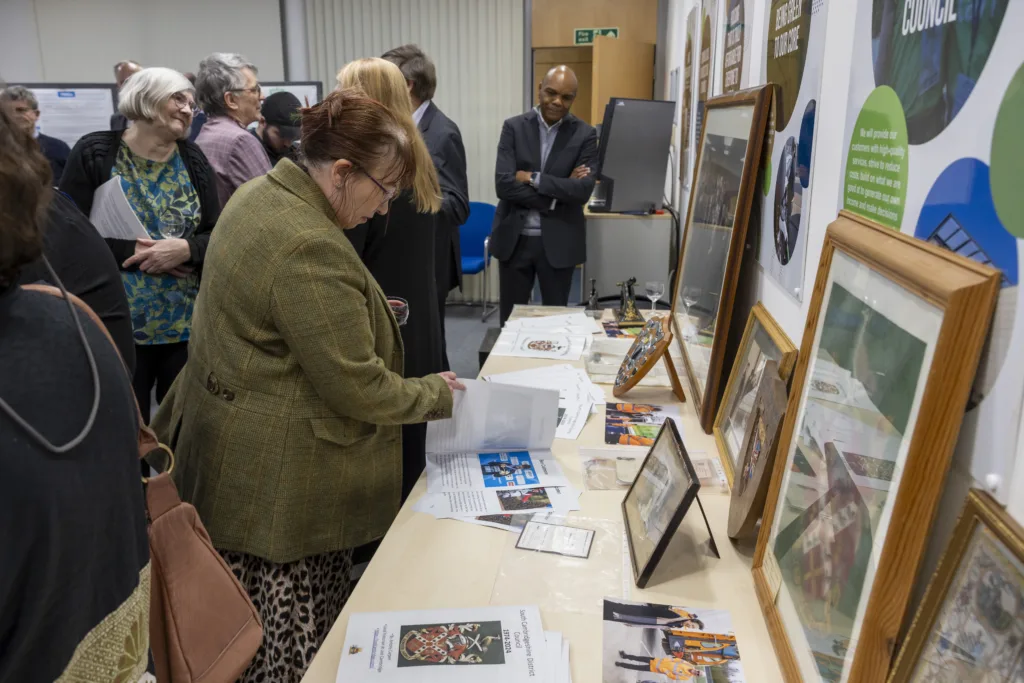
50th anniversary celebrations for South Cambridgeshire District Council. PHOTO: David Johnson1990s
1989/90 – Planning consent is given to a waste disposal site at Thriplow.
1991/92 – Refuse collections are scheduled for Saturdays whenever a bank holiday disrupts the regular collection.
1993/94 – The Council grants £300,000 (an additional £50,000 was granted the following year) towards the cost of a swimming pool at Impington Village College.
1994/95 – More than 8 in 10 residents oppose a merger with Cambridge City Council. After more than a year of consultations, the idea is dropped.
1997/98 – The Council investigates erecting acoustic barriers along the A14 and M11 to alleviate traffic noise.
1998/99 – A District Council Tax is levied for the first time: £50 for a Band D house.
1999/00 – South Cambs News is first published in magazine format.

2000s
200/2001 – The green box kerbside collection scheme is launched.
2002/03 – Council receives £1.88 million in DEFRA funding to introduce a new wheeled bin collection scheme.
2003/04 – The new town is named Northstowe, after the ecclesiastical hundred.
2004/05 – The Council moves its offices from Hills Road, Cambridge to Cambourne.
2007/08 – Public speaking at the Planning Committee is introduced.
2010s
2011/12 – Following a High Court Judge ruling, the saying of prayers at Council is discontinued. The Council takes on a £205 million debt from Government as part of the Council Housing stock transfer – but can now receive 100% of its Council rent and capital receipts.
2013/14 – Council agrees to allow meetings to be filmed by the public.
2018/19 – Council passes a motion supporting construction of East West Rail line.
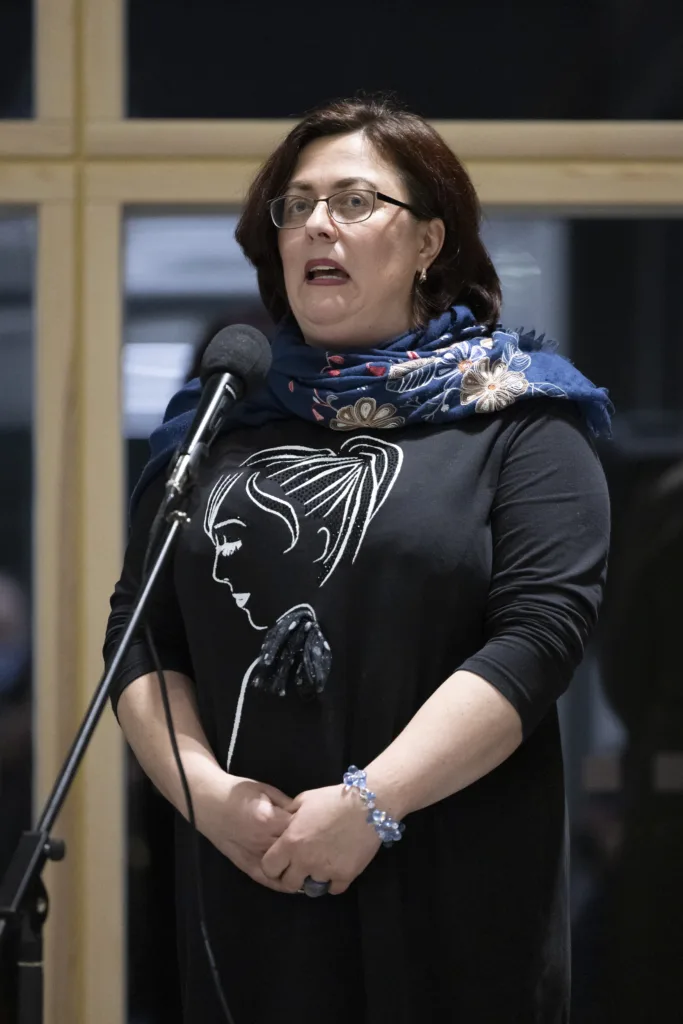
2020s
2019/20 – Council agrees a motion aiming to double the areas of wildlife habitats, tree cover and accessible green space. It also declares a climate emergency.
2020/21 – Council agrees that all Chairs and Vice Chairs and committee members remain the same to provide stability due to the challenges caused by the Covid-19 pandemic. In addition, the Council adopts changes to decision-making process to allow for remote meetings.
2021/22 – Virtual meetings end so meetings are held in-person again or as hybrid meetings. To maintain social distancing, the annual meeting of full Council is held at the hangar in Duxford Imperial War Museum. The Council helps house Ukrainians fleeing war, granting more visas than any other district authority in the country.
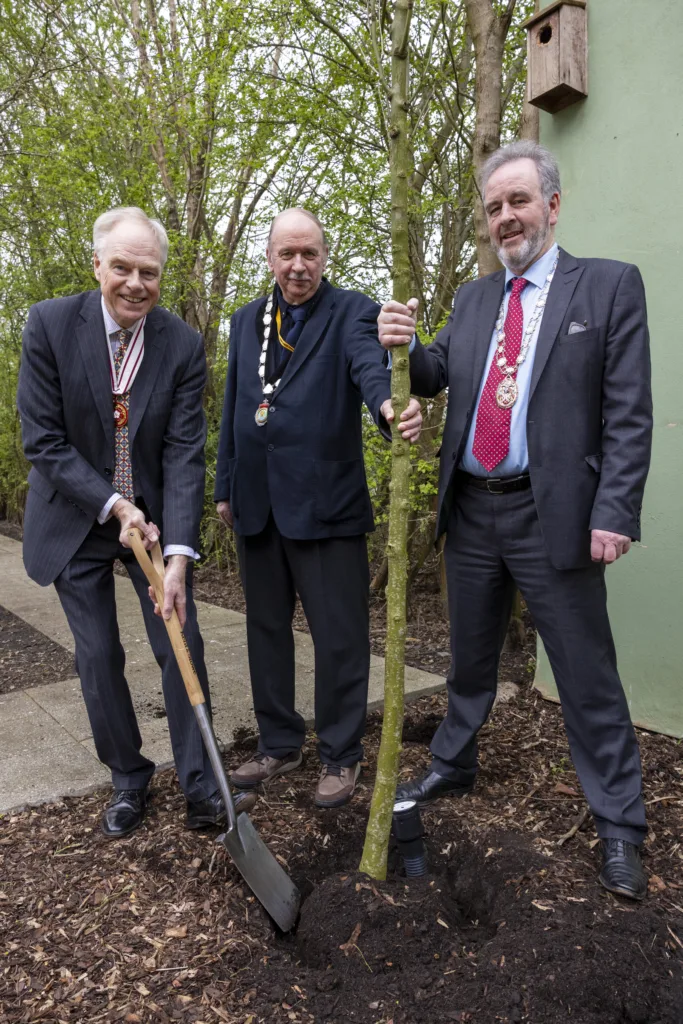
2022/23 – Council agrees a motion signing up to the LGA’s Debate Not Hate campaign condemning the intimidation and abuse of councillors.
2023/24 – The Council achieves bronze accreditation as a Carbon Literate Organisation by the Carbon Literacy Trust


